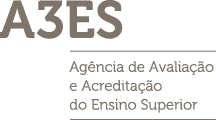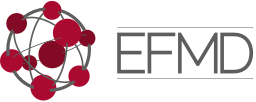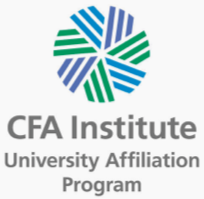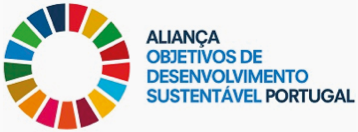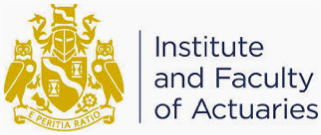
The PhD in Economic and Organizational Sociology is a 3rd cycle programme created by SOCIUS - the Centre for Research in Economic and Organizational Sociology, in 1991. It is currently hosted by ISEG's research unit, ISEG Research.
Doctoral students will be able to carry out their research in the fields of economic sociology and organizations, namely: organizational studies; science, technology and innovation studies; social studies of finance; cultural economics; migration studies; gender studies; social networks; employment, professions and labour relations; regulatory institutions and public policies; social responsibility of organizations; sustainable development; social economy; alternative economies and culture "do-it-yourself", among others. Various methodological approaches are covered, from statistical analysis (descriptive and inferential) to experimental studies, qualitative and participatory methodologies, ethnography and network analysis.
This Program is aimed at anyone wishing to obtain a doctoral degree and perform highly qualified functions in the public sector, in the private sector and in the social economy sector, in the national or international context. Such functions include teaching and research, direction and management of organizations, consultancy, training, journalism, planning, elaboration of development projects, as well as design and evaluation of public policies, projects or programs.
* The course is fundamentally run in Portuguese; nonetheless, in addition to the possibility of writing the project proposal, essays and being provided with class material in English, the PhD dissertation may also be submitted in the same language. A minimum level of proficiency in Portuguese is mandatory. An interview will be undertaken through the selection process.
These are some of the issues discussed in the curricular units and around which research has been consolidated.
What are the effects of a rapidly changing global economy? How do organizations evolve and adapt?
What is the role of science in the Anthropocene era?
What is the role of states, markets, institutions, organizations and individuals in the constitution of economic and financial practices?
What explanatory factors can be found, historically or currently, among economics, politics, culture, technology or the environment?
How are citizens involved in decision-making processes that concern their economic and financial daily life?
What balance or imbalance exists between employment and the other dimensions of human life in the 21st century?
Candidates for the school's doctorates can apply for various grants, namely FCT grants (awarded by FCT or ISEG research centers) and, in some cases, ULisboa grants. The criteria, rules and regulations for applying for scholarships are detailed on our website.
FCT awards scholarships to doctoral students, enabling them to dedicate themselves to research in all areas of knowledge. More information at www.fct.pt.
In some cases, PhD students can enroll in projects hosted by research centers or be supported by them. For more information, contact the doctoral coordinator.
Applicants must submit a brief research proposal when applying (download file). here). After admission to the program, you will be assigned a tutor who will follow your thesis project during the first year of the program, which will be presented and discussed in the Research Seminars.
At the end of the 1st year, a consolidated version of the project will be evaluated by a panel composed of representatives from ISEG and other institutions, who may suggest changes or recommend that the doctoral student discontinue his/her studies. If the thesis project is accepted, it is registered and the name of the supervisor is confirmed.
The process of preparing, researching and writing the thesis lasts two academic years, in accordance with ISEG's General Regulations for Study Cycles Leading to a PhD Degree.
This program is aimed at all those who wish to obtain a doctoral degree and perform highly qualified functions in the public sector, the private sector and the social economy sector, in a national or international context. Such roles include teaching and research, directing and managing organizations, consultancy, training, journalism, planning, drawing up development projects, as well as designing and evaluating public policies, projects or programmes.
| Year 1 - Semester 1 | Professor | Credits |
|---|---|---|
| Economic Sociology | Rafael Marques, Joao Carlos Graça | 7.5 |
| Organizations and Work | Maria Joao Santos, Daniel Seabra Lopes | 7.5 |
| Research Methods and Techniques | Amílcar Moreira, Sandra Faustino | 7.5 |
| Research Seminar I | Sara Falcão Casaca and Marta Varanda | 7.5 |
| Year 1 - Semester 2 | Professor | Credits |
|---|---|---|
| Themes and Debates in Economic, Organizational and Labour Sociology | Sofia Bento | 7.5 |
| Optional 1 | – | 7.5 |
| Optional 2 | – | 7.5 |
| Research Seminar II | Marta Varanda and Sara Falcão Casaca | 7.5 |
| year 2 | Professor | Credits |
|---|---|---|
| Thesis/Research Seminar III | Marta Balcony | 60 |
| Year 3 | Professor | Credits |
|---|---|---|
| Research thesis/Seminar IV | Marta Balcony | 60 |
See the description of each Curricular Unit here.
Candidates must hold a Master's degree in the scientific areas of Sociology, Economics, Management or other social sciences deemed appropriate by the Scientific Committee. Holders of a degree in one of the aforementioned scientific areas with a minimum classification of 16 out of 20 or, exceptionally, with a lower classification, may also apply, provided that the respective curriculum reveals scientific preparation or relevant professional experience. Other candidates who demonstrate the ability to monitor the program may also apply.
The selection is made by the Scientific Committee based on the following criteria:
Provisional tuition fees for 2026/27, pending confirmation by the University of Lisbon's statutory bodies.
| students from | For Year 1 | For the following years |
| Students from the European Union | € 3,500 | € 2,000 |
| Students outside the European Union | € 4,000 | € 3,000 |
The PhD program lasts three years.






